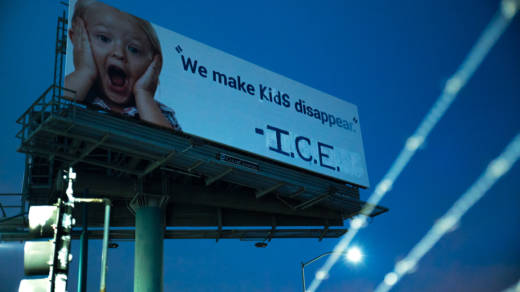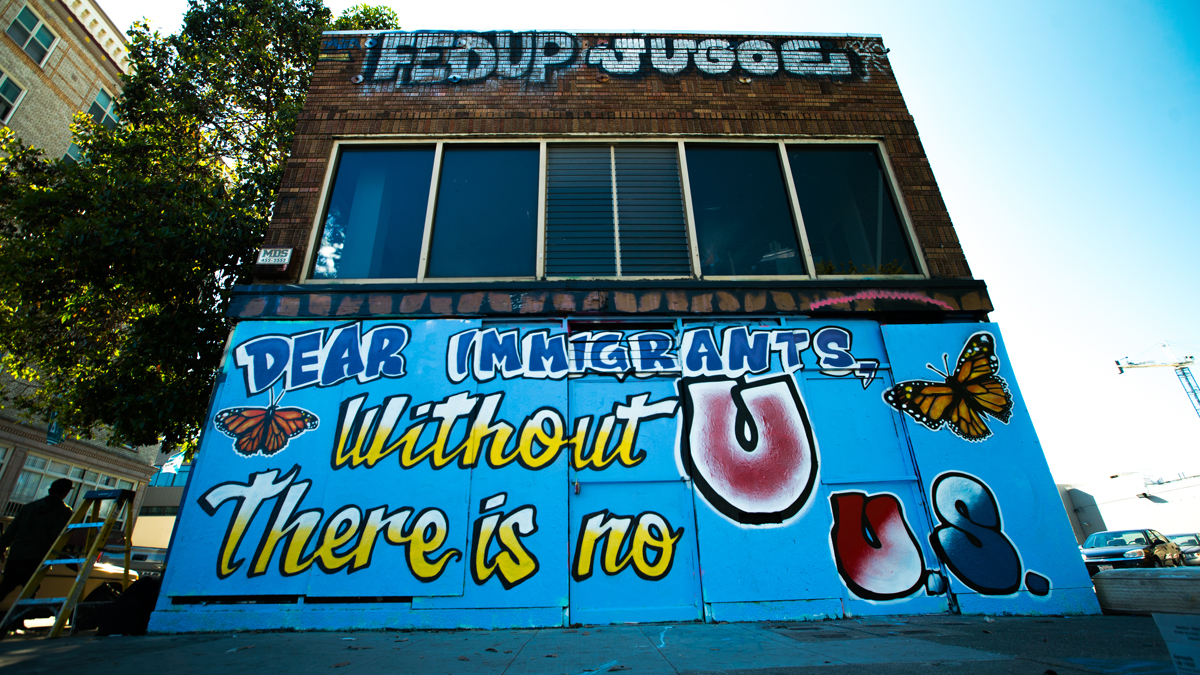Early in the morning of June 21, commuters on Interstate 80 were greeted by an unusual sight. “We make kids disappear,” read an altered billboard over Shellmound Street in Emeryville. The message was signed, “—I.C.E.”
The billboard responded to President Trump’s “zero-tolerance” immigration policy, and U.S. Immigration and Customs Enforcement’s (ICE) enactment of that policy, which separated 2,800 or more children from their parents along the U.S.-Mexico border since last summer. Trump later reversed the mandate of family separations, and as of July 27, the federal government says it has met the court-ordered deadline for reuniting “eligible” parents and children. But 711 children deemed ineligible to reunify with their parents—the parents of 431 of those children were seemingly deported without them—remain in federal custody.
The message, which was removed by midday, struck a chord in the Bay Area, where many people are part of mixed immigration-status households and have personally witnessed or gone through the trauma of separation and deportation.31
The American activist collective INDECLINE claimed responsibility for the billboard, which originally read “We make junk disappear,” next to the face of a shocked blond-haired child, an ad for 1-800-GOT-JUNK.
The collective, a group of filmmakers, graffiti artists and photographers, worked on the billboard overnight, and by the following day, it made the local media rounds. Even the mayor of Emeryville, John J. Bauters, tweeted about the billboard. Unsurprisingly, he didn’t condemn it, instead saying the message “reflects our community’s belief that #FamilesBelongTogether.” (Mayor Bauters often uses his Twitter platform to support prison reform, and the need to protect the most vulnerable members of our community.)



